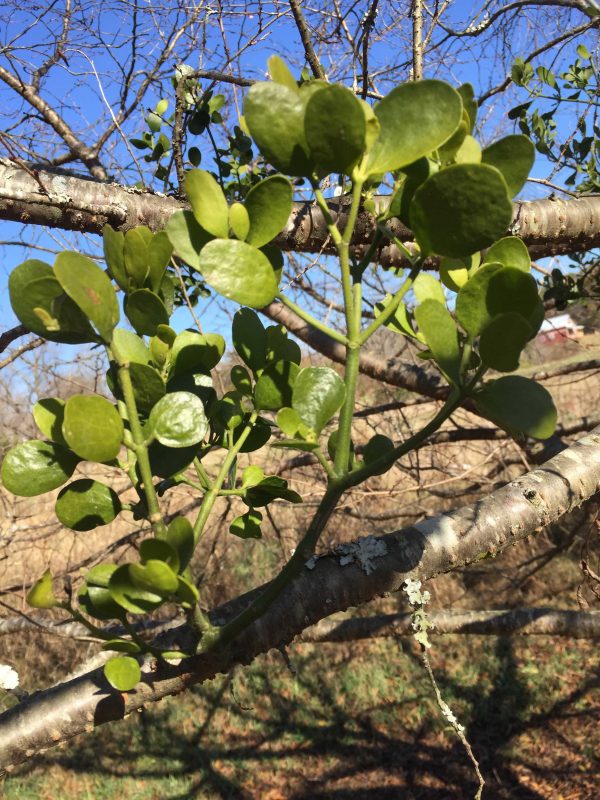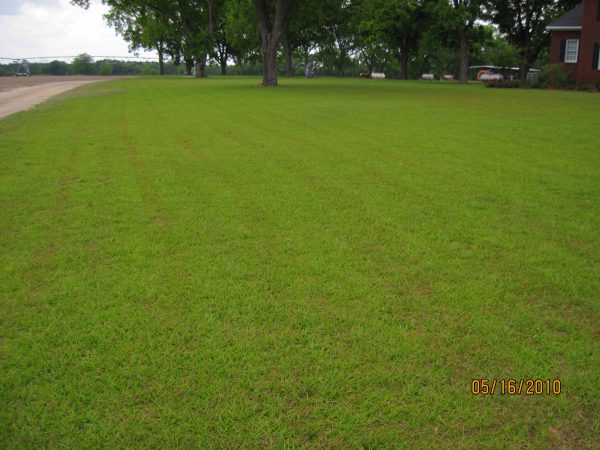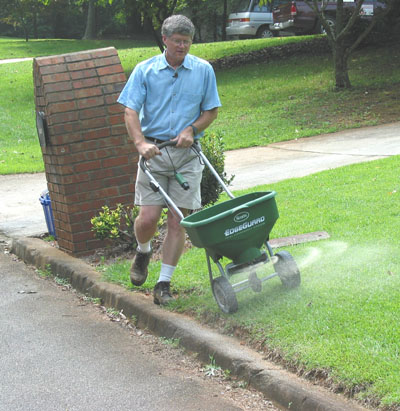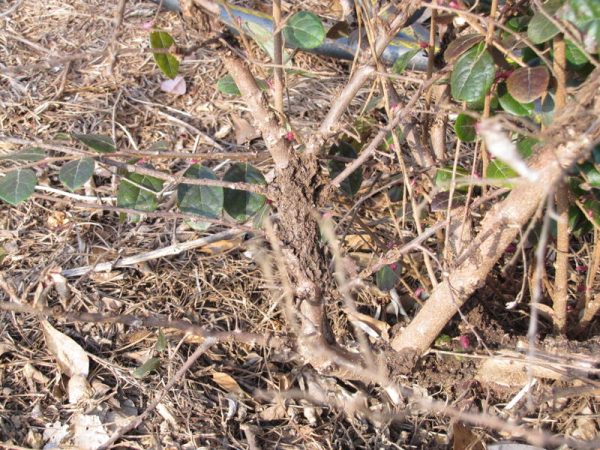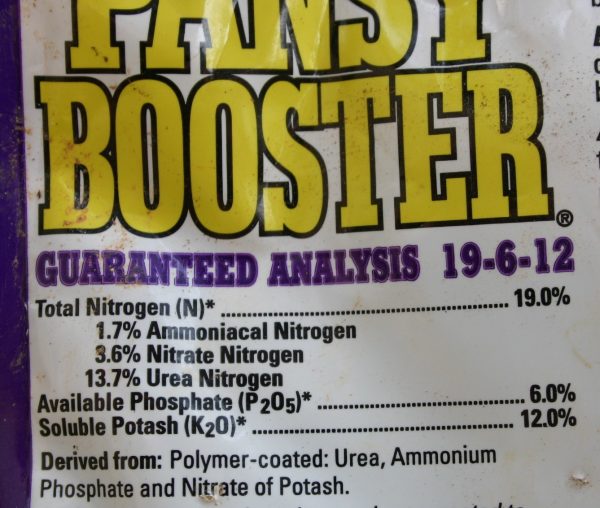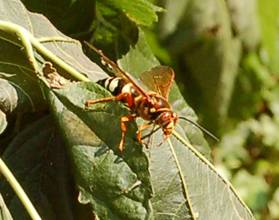Termites – What to do When Found
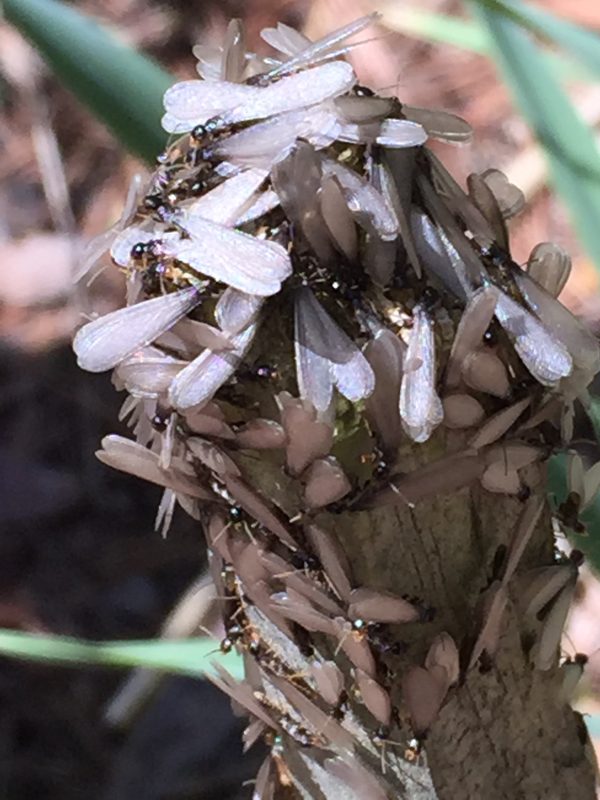
One of my earliest childhood memories is the discovery that termites had taken up housekeeping with the Reeves family. When the termite man came to examine our hallway, his inspection revealed an entire 8′ x 16′ wall whose interior was the consistency of cardboard. He crawled under the house with his tank of potent poisons. We called the carpenter to replace the wallboard.
Every April, unfortunate homeowners will notice piles of silvery termite wings beneath windows inside the house. Or they will attempt to hang a picture and send the nail into an adjoining room with a single blow. Or they will find termites in a rotten stump (these are usually no problem). Concern, if not outright panic, ensues as they begin the process of deciding what should be done about their termites.
see Is it necessary to control termites in a stump? (short answer: No)
see Termite vs Ant Identification
Scroll down to see termites in a stump
University of Georgia insect experts have compiled a list of the most frequently asked questions about termite control. Here are their thoughts:
Q: How soon after I discover termites should I have the infested structure treated?
A: In most cases, termites do not damage a structure rapidly. There is time to make an informed decision. Take time to obtain several opinions – in the long run, it could save you both time and future problems.
Q: Which termiticide should be used to control a termite infestation in my house?
A: There are several effective products and methods used to control termites. These products are all registered and tested for safety with the Environmental Protection Agency and the Georgia Department of Agriculture. Your pest control company may select from any registered chemical. In general, two methods are used to control termites: drenching with a high volume of chemicals or placing bait stations.
Q: Will there be an odor with the treatment?
A: Several registered termiticides contain chemical carriers that may create odors. The odors will usually dissipate within several days. Extremely damp or wet conditions may cause the odor to linger longer. These odors should have little impact on the vast majority of people. If, however, you have any health concerns, you should consult your physician.
Q: How do I know that the person treating my home knows what they are doing? How should I choose a company?
A: All professional pest control operators must be registered or certified with the Georgia Department of Agriculture. Ask to see their Department of Agriculture registration or certification card.
MORE INFORMATION
Termite Control Services: Information for the Georgia Property Owner Termite Control Services
TERMITE CONTROL: ANSWERS FOR THE HOMEOWNER
Press Play to see Termites in a stump



